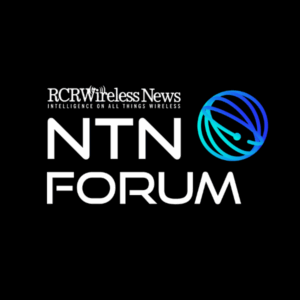WASHINGTON-Amid swirling rumors about a possible general counsel’s seat at Microsoft Corp. or something similar at Intel Corp., Federal Communications Commission Chairman Reed Hundt announced May 27 that he will be leaving his position as soon as President Clinton names-and the Senate confirms-his successor.
Hundt has served three-and-a-half years of a term scheduled to end June 30, 1998. Some commission insiders and industry pundits have speculated that there will be a power struggle between at least two candidates for the chairman’s seat.
Hundt denied that pressure from Congress, from the telecom industry or from the Clinton administration was behind his decision, instead saying that it was based on family demands. The recently announced Justice Department investigation into possible bid-rigging during the personal communications services auctions also played no part in his decision, Hundt said.
In his letter of resignation to the president, Hundt wrote, “I believe it is time for a new group of commissioners to join Commissioner Ness in carrying out the commission’s future mission, and I know it is time to devote much more attention to my family … As the commission turns to its new challenges, I respectfully request that you commence the process of selecting my successor.” Hundt ended with, “I am sad to face the prospect of leaving my wonderful post, but I am profoundly grateful to you for giving me the opportunity to serve.”
In his response, President Clinton-who attended Yale with the chairman-lauded Hundt for his “strong and visionary” leadership, the launch of spectrum auctions and his single-minded attention to implementing the Telecommunications Act of 1996. “Chairman Hundt’s leadership has opened opportunity to businesses, here and abroad, while ensuring that all Americans share in the benefits of the telecommunications revolution,” Clinton wrote. “The vice president and I are sorry to see him go and extend to him thanks on behalf of the American people for his excellent service.”
Vice President Al Gore, with whom Hundt attended St. Albans school in Washington, D.C., commented in a written statement, “He helped to open up communications markets in the United States and made sure that our pro-competitive agenda was successfully exported through the World Trade Organization telecommunications agreement and other landmark bilateral treaties. He helped to spur and then guide the move from analog to digital communications … I hope and expect that he will return some day to public service.”
Hundt first announced his departure to his personal staff and then to the commission as a whole. In a lengthy speech to all FCC employees, he ticked off the commission’s accomplishments during his stewardship, including increased spectrum opportunities for public safety, spectrum auctions, the creation of the Wireless Telecommunications Bureau, increased competition due to the introduction of personal communications services and a totally retooled spectrum-management policy.
Hundt refused to comment on any choices for his successor, saying that he would express his opinions only to the president and vice president, and only if he were asked. It is no secret, however, that his choice for a new commissioner and, perhaps, a new chairman would be FCC chief counsel William Kennard, whose name was sent up by Congress to President Clinton late last Friday along with a Republican candidate, Harold Furchgott-Roth, currently chief economist for the House Committee on Commerce.
Three other names also have surfaced at commissioner candidates, with one strongly in the lead, according to one source, for the top position. Michael Powell, chief of staff at the Justice Department’s Antitrust Division and son of Gen. Colin Powell(ret.), is said to be backed by Sen. John McCain (R-Ariz.), and his name could be forwarded soon, most likely attached to the nomination of Democrat Kathy Wallman, a former chief of the FCC’s Common Carrier Bureau who currently is chief of staff at the National Economic Council. According to one source close to the commission, Wallman (with the backing of the administration) has been “in touch with” senators of rural states to “assuage” constituents’ worries about the impact of telecom reform in their areas. Another possible Democratic candidate is Ralph Everett, a former aide to Sen. Ernest Hollings (D-S.C.). Everett is a known quantity to congressional committees.
Some in the industry are apprehensive about the near future. “We don’t need this in wireless at this time,” said attorney Tom Gutierrez, a partner with Lukas, McGowan, Nace & Gutierrez here. “Continuity will be important, and Bill Kennard probably would be the best choice.” Disagreeing somewhat with that assessment was Robert Foosaner, a former chief of the FCC’s now-defunct Private Radio Bureau who now heads Nextel Communications Inc.’s regulatory and government relations operations.
“Either Kennard or Ness would be good, but no one has a handle on Kennard’s policies,” he said. “Hundt’s resignation won’t throw wireless into flux. If they get the 800 MHz docket done on circulation, I’ll be pleased.”
In addressing what have been perceived as battles between himself and the other commissioners on certain communications issues, Hundt pointed out that of some 1,500 votes in which he has participated, he and Commissioner James Quello only have voted differently 12 times. Colleague Ness, complimenting Hundt on “his vision, his courage, his intellect and his ability to motivate the many talented people that have helped this agency to meet every challenge,” added that “this is a time of change at the FCC, but it must also be a time of continuity. Our top priority remains to implement the Telecommunications Act of 1996.”
Despite his repeated run-ins with congressional leaders, none took a parting shot at Hundt when the reactions to his departure began to flow. “While we have different philosophies, I have enjoyed my relationship with Reed Hundt,” wrote Rep. Thomas Bliley (R-Va.), chairman of the House Commerce Committee. “I have come to admire his focus and intensity in implementing the provisions of the Telecommunications Act of 1996 … Reed Hundt’s tenure at the FCC will be remembered for his commitment to breathing life into the provisions of the Act, especially its core provisions, those which will ultimately give consumers a choice of providers in local telephone service.”
Hundt would not comment on any speculation regarding his future, and he has not recused himself so far from any issues that are pending before the commission. He also stated that he would be talking to no one about a new job until he departs. The only concrete work in which he plans to be involved is authoring two books, one detailing societal changes created by communications and the other-a fictional work-about New Haven, Conn., during the years he spent attending Yale.






